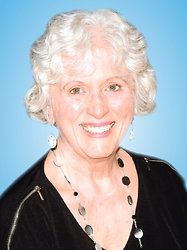It is a topic of discussion that evokes passionate proponents for both Yes and No answers to the question, Is there unconditional love?
When love is new, lovers will often swear to unconditional love until eternity. But eventually, even soulmates will usually point out that all relationships need boundaries.
I believe in boundaries and learned as a child that even a loving, forgiving God has a list of 10 transgressions that would keep us separated from Him. The older I became, the more I understood what could not be accepted, even as I continued to believe in forgiveness and knew the power of unconditional love.

Forgiveness should be given, up to 70 times 7, I learned. And I believed it. I still believe it. But forgiveness is not the same thing as overlooking transgressions, allowing boundaries to be crossed, and especially, keeping unhealthy relationships in our lives.
A friend I hold in great esteem, who is married to her soulmate, believes with all her heart that her husband would never deceive her. But, she has always asserted, if he did, she would not consider staying married. "He would not be the man I know," she explains simply.
Anyone we have any history with eventually becomes known to us; they have established their character along the way. If their path is littered with transgressions, toward us or toward others, and certainly toward God, we come to see what none of us want to see, unless we choose denial.
People can certainly change and we will seek signs of that change at every turn - equal to their importance to us. Hopefully, we will see real growth and will fuel it at each opportunity, but, until that happens, we must move on.
Forgiveness is not the same thing
as overlooking transgressions, allowing
boundaries to be crossed, and especially,
keeping unhealthy relationships in our lives.
If we cease to recognize lack of character, whatever the reason, we become part of the problem and do no one any good by keeping our heads in the sand. We do not help another person by pretending all is well when we know all is anything but well. And we do ourselves harm when we cannot face a reality, no matter how painful, no matter the fallout.
Finally, if we are to be healthy, we will seek the Serenity Prayer:
God grant me the serenity to accept the things I cannot change; courage to change the things I can; and wisdom to know the difference.
When I gave my senior speech about this I thought I understood it. In the years since, however, I came to understand the prayer in so many ways. Now, I understand it at a new level. Time will tell if it continues to unfold.
Long a key focus for such groups as AA, the principle is not just for those who recognize addictions; it is for everyone. If not needed to make improvements in ourselves, it is needed to check our health, our realities. The cost of serenity can be great but is worth whatever it takes to achieve and maintain.
I am thankful to those dear enough to me to know who I am who have helped me to strive for and, hopefully, achieve serenity. Also, I cannot express the depth of relief to know who I can and who I cannot count on to walk beside me as I strive to be the best person I can be. It is a never-ending quest.
Jean Loxley-Barnard has been a writer all her life and studied both sociology and psychology at George Washington University where she earned a B.A. Her company, The Shopper, Inc., encompasses all the Loxley-Barnard family publications - The Shopper Magazines and Doctor to Doctor Magazine. She has been in the advertising, consulting and publishing business for 39 years.

